#social games
Note
Hi! I'd like to run a game that's Jane Austen-esque or a political/social drama with fantasy elements. Think A Court of Fey and Flowers, except I don't want to subscribe to their channel so I haven't actually seen it. Fairy settings in particular would be appreciated! Thank you in advance
THEME: Political and Social Drama
Hello, I think I have a really fun collection of options for you to take a peek at. We’ve got fairies, we’ve got secrets, and we’ve got drama!
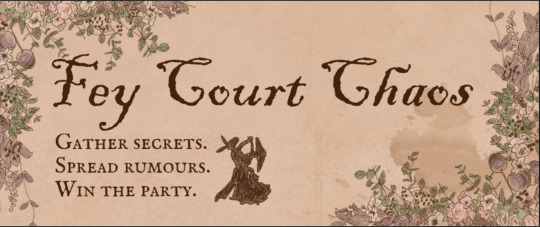
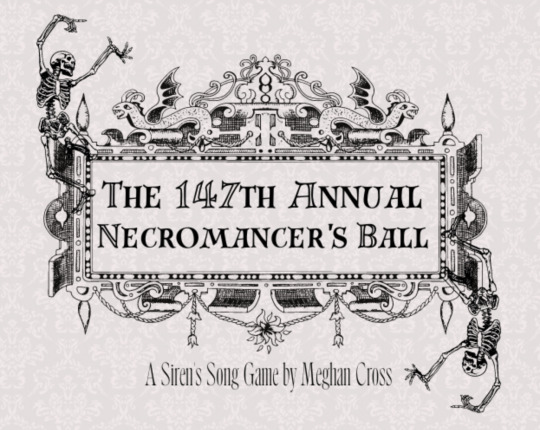
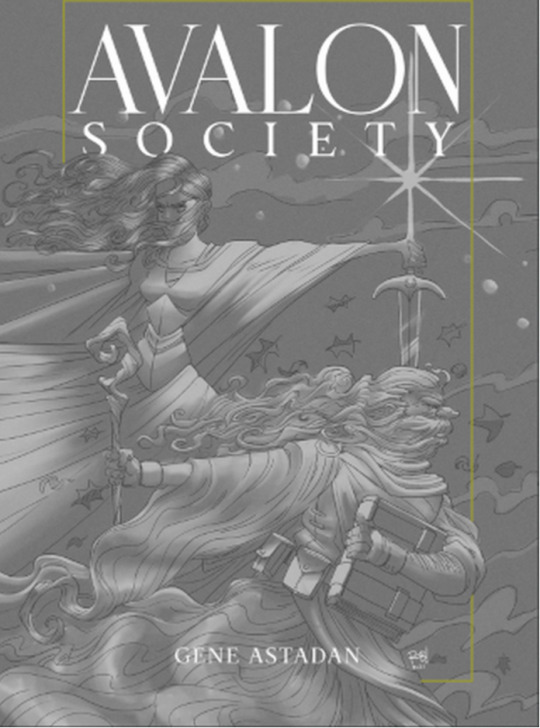
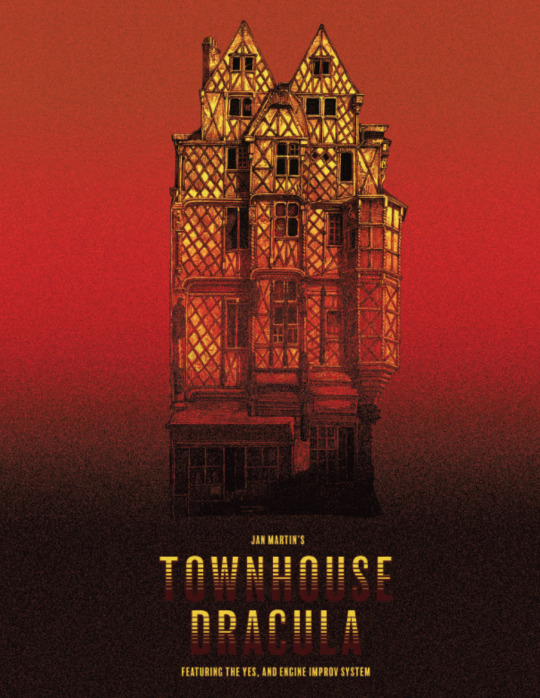

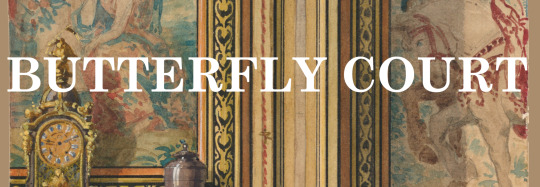
Fey Court Chaos, by Mabbly.
Fey aristocrats party the equinox away. You have been invited by the most prestigious monarchs of this wild magical land. Parlay with potential allies, humiliate your enemies, & impress those worth impressing–but avoid getting kicked out yourself!
Fey Court Chaos is a party-based tabletop role-playing game designed to let you escalate a royal ball into dramatic highs and lows. You will need a pool of dice or coins to play. Any kind will do, but the fancier the better!
This is a game about trying to make a name for yourself while possibly ruining the status of your companions. You’ll wager points of Reputation every time you do something risky, with the risks rising depending on the status of the person you’re interacting with. Success means a rise in reputation or learning a juicy secret. Failure means losing someone’s favour, or even giving one of your own secrets away! If you love fantasy faerie settings, this game gives you all the basics, and has advice for the game runner as well. You should definitely check it out!
The 147th Annual Necromancer’s Ball, by Meghan Cross.
You are cordially invited…
The 147th Necromancer's Ball is a one page TTRPG about necromancy and feeling fancy for a GM and 3-6 players played with a single d6.
You are necromancers attending The 147th Necromancer's Ball, dressed to the nines with your familiars in tow. You are ready to have a wonderful time, but more than that you are ready to show your rival once and for all that you are better than them by displaying your social prowess (and maybe even winning Necromancer of the Year.)
But not everything goes according to plan when a party crasher shows up to ruin the evening for everyone - and it is up to you to stop them and save the party!
This is a game all about being dramatic as fuck and also petty as fuck. You can roll Necromancy when you want to do magic or command the undead, and you roll Feeling Fancy when you engage in social entanglements or navigate the ball. Showing that you’re the Necromancer of the Year won’t be easy, especially once a party crasher shows up to complicate things - and possibly steal your chances of winning!
If you love silly games, as well as taking time to describe just how drop-dead (pardon the pun) gorgeous you look, this might be your game.
Avalon Society, by Martian Machinery.
Avalon Society is a game about courtly love and intrigue, and the conflict between passion and duty. You'll play knights, lords, ladies, upstarts, pretenders, unknowns, or possibly a changeling or a sorcerer. Pull swords out of stones, break curses, ascend to the round table, duel your rivals, or even fall in love with them. It’s up to you.
Avalon Society is a setting created for Good Society, which is the game of social intrigue, and in fact, the game that helped build A Court of Fae and Flowers! Good Society takes place in the same time as Jane Austen’s novels, but Avalon Society replaces character roles and family backgrounds in order to represent an Arthurian story. The court also shifts seasonally, which feels very reminiscent of a fairy court. The biggest downside - you also have to buy Good Society in order to use this supplement.
Townhouse Dracula, by Tenbear.
You have the opportunity to attend a dinner party at the one and only Townhouse Dracula. Here you will vie for Dracula’s favour, which includes eternal life and power beyond your imagination.
To decide who gains this power Dracula puts party guests through a gauntlet of past memories. Guests do their best to impress Dracula and convince them that they would be an asset to have in the Dracula lineage.
Townhouse Dracula presents the players with scenarios that their characters will have to navigate, trying to piece together Dracula’s memories when they might not have all the answers.
This is first and foremost an improv game, so it’s good for people who like coming up with pieces of a story on the fly. You’ll get tokens as rewards for being funny, clever, bold, kind, etc. At the end of the game, you’ll tally your score and determine whether or not you become part of Dracula’s lineage. If you like the mysterious allure of vampires and want to stretch your storytelling muscles, you might want to check out this game.
Tax Cuts and Pixie Dust, by Weird Blue Yonder.
The home of a sordid assortment of terrible woodland spirits doing terrible things in a desperate bid to sit atop the Fairy Throne.
You are those woodland spirits, and election season is just around the corner…
Tax Cuts and Pixie Dust is probably the most political game on this list. It uses pretty standard faerie tropes - you can be an elf, a leprechaun, a banshee… even a giant! All of you are supposed to be part of the same party, but you all secretly want the throne!
This is a game about dirty politicians, with the humour and camp turned up to allow you to get really ridiculous with it. The resolution system involves building small dice pools of d6’s, tallying successes to see how you fared. The GM is responsible for presenting scenarios and complications, which are present in a few roll tables. At the end of elections you vote on each player’s position in the new court, and that’s game!
Butterfly Court, by mishagw.
In Butterfly Court, you will play as a member of the titular Butterfly Court, the court of the monarchy of the kingdom Praecia. This is a court intrigue game that uses the No Dice No Masters system, based on Avery Alder's Belonging Outside Belonging games.
This is a storytelling, roleplaying game, where players portray members of a court, but not necessarily the monarch or the heir. Instead, the game focuses on everyday lives, intrigue, relationships, obligations, and myriad other concerns of the regular people in the court: nobles, but also staff, servants, artists, and other people that make court life possible.
Butterfly Court doesn’t dictate who you are exactly, but it leaves a broad space for different kinds of supernatural beings. So if you want faeries, this game is certainly able to take place in a faerie court. The game is designed to pit your characters into situations that are difficult for the country at large: rebellions, scandals, famine, crime, etc. You also create factions that have different methods and priorities.
Everything that you create together is shared communally, because Butterfly Court uses a GM-less, diceless game system. This means that you’ll each have shared authority over where the story goes next, although there is a cycle of play that helps you move from one scene to the next. I think that the idea of this being a game about different factions navigating political turmoil has the potential to be represented really well through a collaborative system like this.
Games I've Recommended in the Past
If you want something more like Jane Austen, you might like Le Bon Ton!
If you like equal parts adventure and social intrigue, then Household might be for you.
150 notes
·
View notes
Text
Oh my god I haaaate social games people play. Like why can’t my coworker just come right out and be like “I’m feeling insecure, please validate my masculinity” instead of bothering me while I’m making a sandwich with his gym bro shit like “guess my body fat % 🤪.” Damn it Liam, I’m not going to get what you really meant until like five days later because I’m fucking autistic, you walnut.
#actually autistic#autism spectrum#autistic#autism#actually neurodivergent#neurodiversity#neurodivergent#social pragmatics#social games
36 notes
·
View notes
Text
Finding people attractive is not a moral judgement on them.
Finding people attractive is not a moral judgement on you.
Finding people unattractive is not a moral judgment on them.
Finding people unattractive is not a moral judgment on you.
Treating people better or worse based on whether or not you want to fuck them is disgusting and weird.
Being a decent human being to someone should not mean you want to fuck them.
Someone being a decent human being to you, does not mean they want to plow you.
Possessiveness isn't love.
Infatuation isn't love.
Sex isn't love, sexual desire isn't love.
Feeling really good isn't love.
Love is a decision.
Kill the christian in your head, holy fucking shit, bro.
#egirl philosopher#egirl#gender#feminism#relationships#friendships#social commentary#social justice#social anxiety#social issues#social games#amatonormativity#i fucking hate it here#fucking children
23 notes
·
View notes
Text
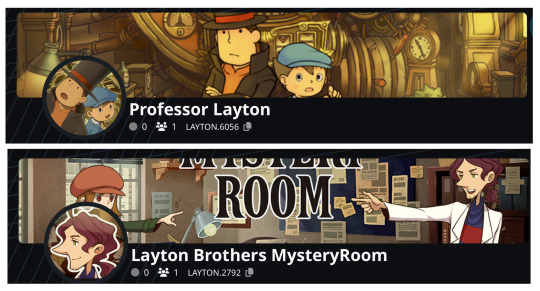
HEY YOU!🫵🤨
Do u have VRC and are a fan of the Professor Layton series, Mystery Room, or both? Well I got yo back brotato chip👌
I made both groups for these 2 for vrc since when I first looked both of them up there were ZERO RESULTS for them 😭 and I won’t take that so I gotta do what I gotta do as a fan 4 both of them lol.
If y’all are worried about events & all that stuff, don’t worry it’s mostly gonna be a chill group that we’re gonna mostly gush about this puzzle series. >w<
#vrchat#vrcommunity#vrc group#VRC groups#VRC#professor layton#layton brothers mystery room#mystery room#alfendi layton#hershel layton#video games#social games
24 notes
·
View notes
Text

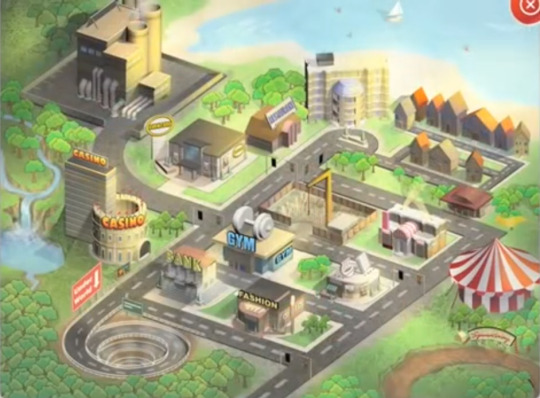
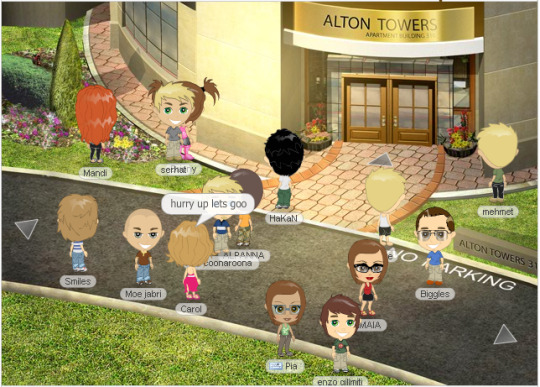
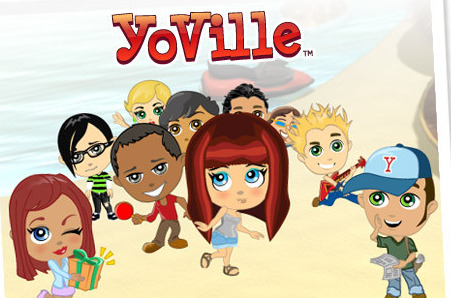


Yoville, social virtual world game by Zynga (2008)
Later purchased by Big Viking Games and renamed "Yoworld" (2014)
#i was OBSESSED with this game when I was like 11-15#the stuff i did on here probably greatly impacted who i became today lol#my fb eventually got banned and i lost everything and was DEVASTATED!!#i wish i could go back#yoville#yoworld#zynga#big viking games#facebook#nostalgia#nostalgiacore#2000s childhood#childhood#2000s#virtual world#avatar game#social games#2008#2014#teencore#old web#old internet#old net#facebook games#childhood nostalgia#nostalgic
11 notes
·
View notes
Text
Humans don't have more than 8 emotions, right?
Right?
You only need a few, right??
Cutting down listed mental states from 32 to 8, but feeling like I failed a test cuz I KNOW there's more than that
#game design#gaming#game development#tabletop rpgs#ttrpg design#ttrpg community#social games#social interaction#social intelligence#autism#tabletop roleplaying#tabletop games#ttrpg#indie ttrpg
15 notes
·
View notes
Text

Over a full month since my last update. Time really does fly by doesn't it?
For those who I've left cliff hanging, I intend to continue developing Indie Tourney III. July was a busy month. A combination of my new summer job, family events, my first time fighting in Art Fight. Soon, I'll be moving into college too. I cannot make concrete promises on a start date, but I am estimating to have the map complete (and the tourney started) near the end of August. I know for a fact that the finished map will likely look like this, a sketch. Rendering the whole thing in color would be a recipe for insanity :')
Now... what's new?
Logic & Optics - Being the mystic island of puzzles with mysterious origins, naturally many of these structures are uninhabited and showing their age. Landscapes from all the four representatives are present, from line-tracing panels, to the Workshop's infernal machinery, to the towering cubic village, and the perspective-bended monuments. Paired together, they fill the island with an aura of grandeur, attracting adventurers both hardened and new, but all sharing an appetite for ingenuity.
Team-Building Exercises - Welcome to The Co-op Campgrounds! A fusion of both your classic camp away spots and jungle-style training grounds, complete with log cabins, watchtowers, and a soccer field. As a boot camp for Co-op play, every aspect has been designed to include an essence of companionship and teamwork. You'll need to communicate closely with your partner to ring the bell at each course's end. The same goes for the sports events that put your skills to the test! You'll be sleeping together in bunks too, a perfect time to come up with activities of comradery on your own! Not to worry, the warden tents are always open to share your state of mind or report the trolls of fellow campers.
#indie games#tumblr polls#tumblr tournament#poll tournament#cartography#gaming#graphic design#tournament#landscape sketch#landscape concept#puzzle#puzzle games#co op games#multiplayer games#social games#mmo#fez game#the witness#the room game#monument valley#ibb & obb#sky children of the light#sky cotl#vitamin connection#pico park
13 notes
·
View notes
Text
Hey guys, I got an idea! It'll take a while but..
Rec Room talent show for 100k tokens! (I don't have them rn, but by the time I'm done setting this all up, I will).
I want to get good judges, so I'll be trying that, and I'll make a huge room and do these every once in awhile (whenever I manage to get 100k tokens I don't feel personally attached to).
There will be 40 contestants, 10 heard on day one, so forth. By the time we've passed the first round of people, those who've made it past these rounds will be given rewards and abit of a break before starting more rounds.
By the end, the last contestant standing will be the winner!
And there are going to be booths available on the side for displays, and each will be given a personal shout out by me on YouTube (during the videos or livestream of the Talent Show).
youtube
Here's a video about it! Please watch if you're planning on participating! And please fill out..
These Google forms to enter!
(You can only enter if you play Rec Room).
This won't happen until awhile from now since I'm announcing it when I've barely started, I just wanted to let you guys enter! And give you plenty of leeway to prepare and offer your assistance!
Don't know what Rec Room is? Rec Room is a free cross-platform social game where you can build and play with friends from around the world!
Download on Google Play!
Meta and other VR devices have them in your VR store!
Other mobile devices I can't get links to, but..here's Rec.Net! You can download straight from this webpage!
My username on there is ArcosALilFunGuy (!Arco the enby), feel free to friend me!
#rec room#recroom#virtual reality#oculus#oculus quest 2#oculus quest vr#oculus rift#meta quest 2#meta quest pro#vr games#social games#share this#please share#get hyped#non binary#nonbinary#im nonbinary#i'm nonbinary#he/they#they/he#they/them#he/him#vi/vir#Youtube
12 notes
·
View notes
Text



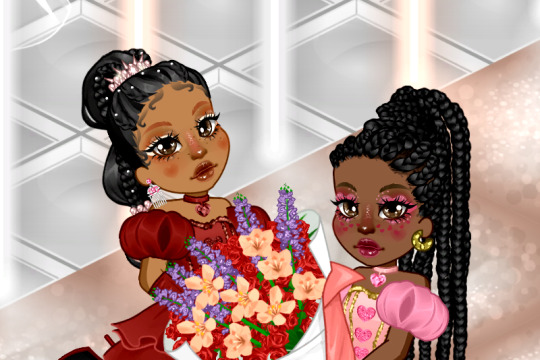

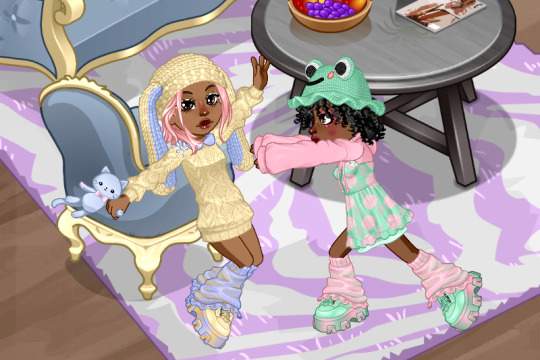
Woozworld Photo Dump ft. @azucarpeas
---> username: Searching
#woozworld#virtual world#virtual worlds#social game#social games#nostalgia#these were all taken in 2023 but woozworld is hella old so...nostalgic
1 note
·
View note
Text
I started playing FFXIV back in 2020 as a means to get out and socialize when physically doing so could be considered impossible. Originally, I played it for a few months, but never really got into it and eventually fizzled out.
But then, I joined a Discord that had a dedicated FFXIV community on it, and that convinced me to give it another go.
Then, I posted my reaction to Haurchefant's death to it, and people seemed to like it. So, I started posting more reactions, personal thoughts about the plot and game, and character-specific moments for my spiritual mooncat. And people kept loving it and encouraging me to post more.
And this experience elevated the game for me, turning it from merely 'a good game' into something special.
I'm now onto Endwalker, the final chapter in this story, and my Mina has completed her journey from being merely a cute avatar for being a full-fleshed OC in her own right. And I'm so glad not just to have experienced the story, but to have shared the story with others, and while I'll be relaxing my playtime a lot once the expansion is over, I look forward to engaging the social side more, as well as bringing this attitude into other games in the future, engaging and sharing their stories with the world :)

2 notes
·
View notes
Note
This may have already been asked about: but courtly intrigue games!?
THEME: Court Intrigue
Hello friend, I’ve got a nice selection for you, with surprisingly a lot of games housed in the Forged in the Dark framework! I’d also recommend checking out the bottom of this post for other games I’ve talked about in the past!

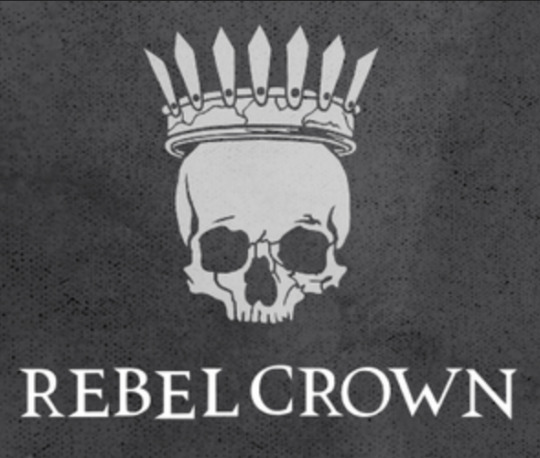

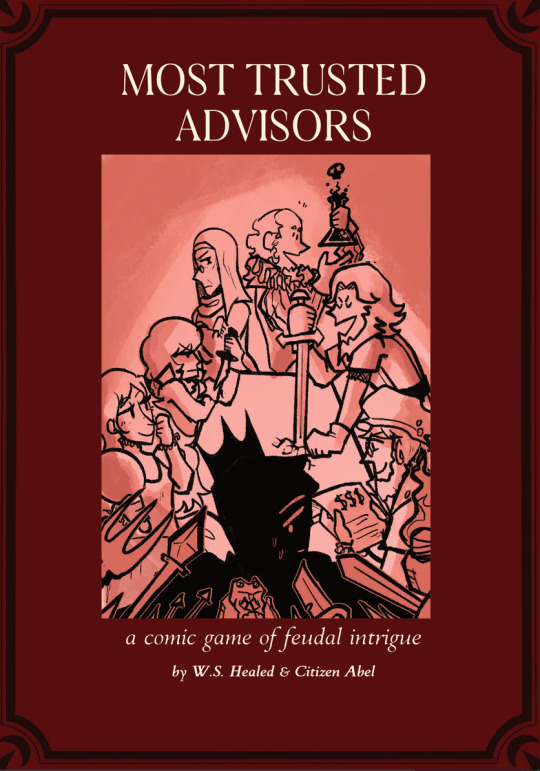
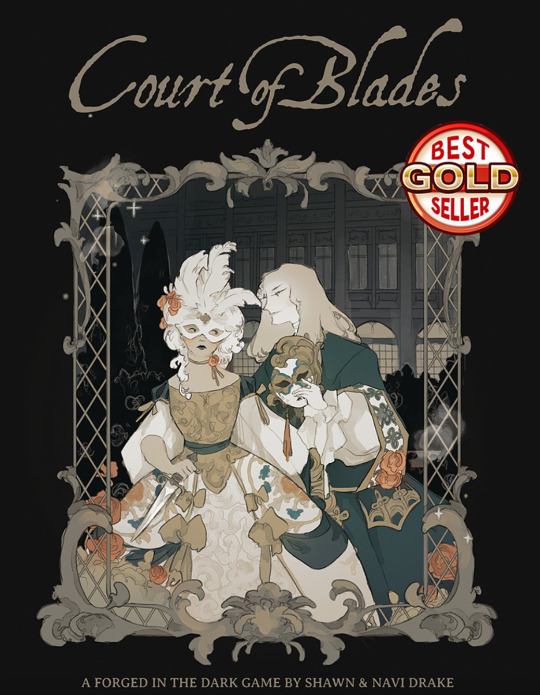
Court of Whispers, by Alexiconman.
The Court of Whispers… the nobility here are neither great nor good. They all have dark secrets they wish to keep hidden, while hoping that their rivals are exposed and lose face in court.
Court of Whispers is a TTRPG/social deduction game for four or more players playing competitively, but requiring negotiation and brief alliances to succeed. No dice, GM or stats are used. The Court itself can be wherever you want it to be - historical, fantastical, whatever. Perhaps it's a mythological pantheon or faerie court or convocation of demon dukes?
Decide on your name and title, then invent a dark secret in three parts.Your rivals will, amongst them, know these details, but you will know parts of their secrets. Who will be the last to have their secrets revealed??
A game all about piecing together information, this will probably appeal to you if you like social deduction games. Bargain away pieces of information that you hold in order to gain crucial secrets that belong to someone else. Lie, blackmail and negotiate until you think you have someone’s complete secret, and eliminate your opponent when you announce it to the group. The game ends when only one person remains, their reputation not completely tarnished.
Rebel Crown, by Narrative Dynamics.
Rebel Crown is a tabletop roleplaying game of courtly intrigue, obsessive ambition, and perilous conflict. One player takes on the role of the Claimant, former heir to the throne who was betrayed by their family and robbed of their rightful titles. Others play their most stalwart allies: wise chancellor, devoted knight, idealistic noble, vengeful soldier, or opportunistic outlaw. Conflicting duties and ambitions will push them into points of tension, but their commitment to the Claimant’s ascent ties them together.
A GM plays the other inhabitants of the cursed and fractured Empire: nobles, commoners, outlaws, and undead wraiths. The GM presents opportunities, foreshadows consequences, and introduces adversity. They present the challenges that make the player characters’ fight for the throne uncertain and exciting. As a group, you play to find out whether the Claimant can take their throne and what sacrifices must be made along the way.
Rebel Crown has a pretty detailed gameplay loop, re-contextualizing the Downtime and Score parts of Blades into a Recon and Sortie phase, respectively. The group’s goal is laser-focused: you’re trying to put your Claimant on the throne. However, there’s different objectives that you can complete in your goal to restore their rightful title, including finding a way to gain status by building trust, weakening factions that oppose you, and either seizing or destroying holdings that are vital lands within the kingdom.
You can build your own kingdom and Claimant if you wish, but the designers have also created two campaigns with some details already decided, to help speed up your session 0, called Serpent & Oak. You can also check out a quick rules reference and the playbook handouts for free!
Courtiers, by Levi Kornelson.
In this game, players will take on the roles of (competing) courtiers, each of whom is lobbying the royal court in an attempt to promote their local agenda. The game uses the front and back of a single sheet of paper, and requires four players, a stack of index cards, pens, and six-side dice to play.
This is a combination roleplaying-game and boardgame, relying on the randomness of the dice and the placement of index cards in a row to determine what proposals the court passes and what proposals are denied. Each player will pick up a pre-written character and flesh out their specific goals using proposals, and then take turns trying to push for their proposals to pass. The game has a very specific end point - that being that the approval pile has three proposals.
I think Courtiers is good for folks who want a single-session experience of court politics, or perhaps a way to determine how a kingdom changes before diving into what that means for their characters in a much larger setting.
Most Trusted Advisors, by the HORIZON MACHINE.
Execute your cunning plan before your liege executes you.
Hark, ye players of games! Indulge in the merry vice of dice-playing with this comic production, easy to pick up and play with but a quick skim of the rules. The digital manuscript has been crafted by our finest computer artisans to be perfect for light-hearted, madcap one-shots and short campaigns.
There is nary a heroic act to be documented within these pages. In Most Trusted Advisors, you'll one-up your friends' plans with Twists and buy their credulity with Ducats as you compete for your feudal lord's approval. Poison and murder your enemies as the loathsome Blackguard, start duels and wars as the boisterous Marshal, or pick one of four other dastardly playbooks with which to accomplish your wicked schemes.
You can set this game in the provided setting, or create your own. The playbooks are reminiscent of Forged-in-the-Dark games, with action ratings, friends and rivals, and special abilities, but much of what you can do follows the same style of play as Belonging-Outside-Belonging games. This is through the Ducat system, which allows you to gain Ducats through certain (nefarious) actions, and spend Ducats in order get new information, present something new to the fiction, or change the story in a specific way.
If you are looking for a courtly intrigue game with the potential for high camp, this is likely the game for you.
Court of Blades, by A Couple of Drakes.
Court of Blades takes place in the vibrant, fantasy renaissance city-state of Ilrien, in a world populated by scheming nobles, court magicians, and dashing duelists.
As a noble retainer, you will engage in the polite civil warfare of the great families. You will host lavish balls, and manipulate the courts, uncover the plots of your rivals, protect the city from arcane dangers, manage your own intrigues and personal scandals, leverage your reputations, connections, and so much more.
Inspired by infamous warring families like history's Medicis and Pazzis, Shakespeare's Montagues and Capulets, or Game of Thrones' Starks and Lannisters, in Court of Blades you will take on the role of a talented retainer to a newly risen House of the Esultare in the great city of Ilrien. The Esultare, composed of the six Houses Major, are considered to be the most powerful families in the Principalities. Amongst them they have their own pecking order, and every citizen of Ilrien is aware of every house’s position within that order.
We play to find out if our noble retainers can play the Great Game and win it all, or if they'll fall prey to the machinations of their rivals or their own human failings.
In this game you’re not the most important members of a great house, but rather just beneath them. This makes you vital to their success, however, because you have the ability to walk where the noble dare not tread. If you can succeed, you may find yourselves elevated to a true place of power.
This is a great game for whispered secrets behind elaborate fans, masked balls where conversations are held throughout a dance, and eavesdropping happens behind false walls or under lush balconies. There’s also magic involved, and a hidden world that you can exploit in your desire to rise to the top. If you like dramatic storytelling and a romantic setting, this might be the game for you.
Also Check Out...
Political and Social Drama Rec Post
#tabletop games#indie ttrpgs#game recommendations#dnd#asks#indie ttrpg#intrigue#social games#court games
69 notes
·
View notes
Text
Social Gaming and Covid-19 pandemic
A new virus dubbed Corona Virus Disease, which had its roots in Wuhan, China, shocked the world in the early years of 2020. (COVID-19). The virus outbreak has resulted in numerous losses and inequities in many facets of life, particularly about the global economy. Regardless of their size, a lot of businesses must shut down since it is impossible to predict when they will reopen. The gaming sector, on the other hand, has not only been the least harmed by this pandemic but thrives in it. This is due to a decrease in outside activities and an increase in inside activities. Social gaming is becoming a substitute for traditional social involvement and interaction.
As a result, playing video games continues to draw more and more individuals every day out of all the conceivable things to do during the lock-down. Video games have become a very prevalent and well-liked pastime because of the coronavirus lock-down, as people have begun to rediscover their old favorites or enjoy trying out new ones to pass the time. There has been an astonishing increase in players from around the world's online activity, according to the gaming industry.
The COVID-19 outbreak has produced peaks and valleys for the larger gaming sector. Over the years, the gaming market in Indonesia has grown steadily. Even years before the COVID-19 pandemic occurs, the development is astounding. More than 70 million people worldwide played video games in 2017, and 90 million people played them in 2018. The number of video game users in Indonesia has topped 100 million in 2019, demonstrating the country's youth's interest for video games and eSports. Additionally, Indonesia, one of the top 10 countries in the world for mobile video game income generation, achieved 40 million mobile video game users in 2019 and is anticipated to produce US$712 million in revenue in 2020.

Finally, the epidemic might cause esports to become more commonplace. Due to the unusual (and unintentional) adoption of esports by broadcasters, leagues, and sportsmen looking to attract viewers, analysts have referred to esports as being "popularized and legitimized in an unforeseen and deep way." "Among younger age groups, a protracted suspension of traditional sports leagues may encourage more fans to regularly participate in esports, adding tens of millions of additional customers to the sector globally."

2 notes
·
View notes
Text
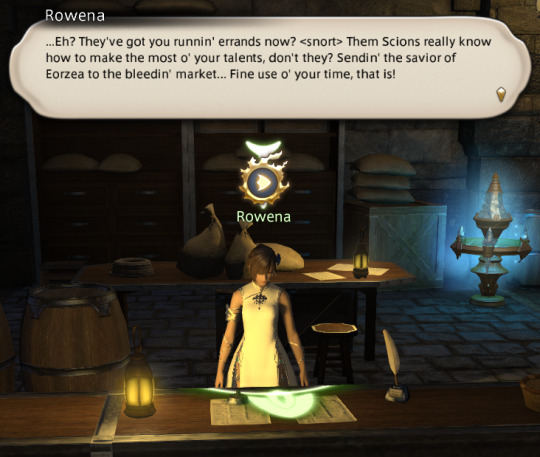
I’ve been playing FFXIV and I noticed something about the pacing of the game.
Generally I think the pacing sucks, and yet I love it when it slows down.
It may be a weird comment, but despite how I feel most of the game is long winded busywork, I actually love it when the game is like "your quest is to just be a good friend". Like I can imagine other players being like, “we have gods to slay what am I doing”, but I'd much rather have a quest where I'm just being nice to a friend than slaying giants or whatever.
I sometimes think of these as the points where the game slows down, and gives itself time to breathe. Which always feels weird to say, because the game feels so slow already. But it’s a different kind of slow. It's not a grindy progression where the questline has a million steps. It's a departure from the main questline to get to be a person for once, instead of a warrior.
There are so many quests where I begrudge an npc for asking me to do something, ostensibly important, but if Tataru, or Yda ask me to help them with their shopping because they're too busy to do it themselves, I'm all "Of course! Don't even worry about it. You're my friend."
6 notes
·
View notes
Text
If you saw the newsletter this a.m. then you know what's up!! If you didn't see it, why haven't you signed up yet?! The Great Whatsabudget Films Easter Egg Hunt is on! Find the eggs, post your find, and get entered to win exclusive E is for Expiation Film prizes!! The game is afoot!
#whatsabudget films#newsletter#easter eggs#film easter eggs#easter egg hunt#short films#indie films#crowdfunding#E is for Expiation#exclusive prizes#social games
0 notes
Text
Week 9: Gaming Communities, Social Gaming and Live Streaming
Especially in terms of its social aspects, video game culture has been steadily evolving over the past few decades. The video game industry has grown at a pace that puts it in direct competition with bigger names in the entertainment sector around the globe, despite the fact that it is just 40 years. On top of that, the video game industry is huge and seen as innovative due to the way it blends entertainment, technology, and culture (Sadakshi Kalyan Ramun, 2023). Thanks to "mobile technology" in the modern period, the gaming industry has evolved and reached a new demographic. It has now permeated "modern popular culture" to the point where "42% of Americans are gamers" (Chikhani, R, 2015). For instance, people of various ages must be conversant with Minecraft. The 91 million users around the world can't get enough of Minecraft, which is like an online Lego universe where you can construct anything you can imagine with blocks.


People that share an interest in a certain genre, style, or type of game come together to form gaming communities. More people than ever before are able to enjoy and participate in online gaming. Certain games have social features that allow players to meet other players from all around the world, form teams, and generally have a great time. Here players may share stories about their favourite games, offer one other advice on difficult tasks, and find new ways to do things. In a lot of games, working together is key. Joining a guild or other online community allows players to work together towards common goals, where they can strategize, collaborate, and practice their cooperation skills.With the rise of live-streaming Esports events to massive audiences in addition to the physical ones, a new social ecology has emerged, resembling that of broadcast professional sports in several respects (2018). Twitch, YouTube, and Facebook Live have given gamers a place to show off their skills and meet other people who share their passion. Half or more of the platform's users spend twenty hours or more each week watching other users play video games. The loyal user base is the key selling point of the site, according to many. As a result of this widespread participation, gaming becomes more of a social medium, with communities emerging around individual games, broadcasters, and the medium itself.

Even while gaming is merely a pastime for some, it may be a great method to meet new people and strengthen existing friendships (Sturart, K., 2013). Gamers offer a "playful space" where they can avoid physically tolerating bad behaviour, but certain users will inevitably "attract hateful [and] damaged" content (Sturart, K, 2013). Many people have found a creative outlet in game production, driven by the love of playing video games. Thanks to freely available technologies like Unity and Microsoft Visual Studio, indie game production has thrived, driven by programmers and amateurs. The growth of the gaming business, which provides players all over the globe with exciting and novel experiences, is a direct result of this creative explosion.
References
Chikhani, R, 2015, The History Of Gaming: An Evolving Community, Extra Crunch, viewed 19 May 2020, <https://techcrunch.com/2015/10/31/the-history-of-gaming-an-evolving-community/>
Pauline Huang 2023, Gaming Live Streaming: Building Online Communities for Esports Fans, YoloLiv, viewed 20 March 2024, <https://www.yololiv.com/blog/gaming-live-streaming-for-esports-fans/>
Social networking in gaming n.d., Internet Matters, viewed 20 March 2024, <https://www.internetmatters.org/resources/social-networking-in-gaming/>
Stuart, K, 2013, Gamer communities: the positive side, The Guardian, viewed 19 March 2024, <https://www.theguardian.com/technology/gamesblog/2013/jul/31/gamer-communities-positive-side-twitter>
Taylor, TL 2018, Broadcasting ourselves (chapter 1), in Watch Me Play: Twitch and the Rise of Game Live Streaming, Princeton University Press, pp.1-23
0 notes
Text
The Social Game
0. problem
Social media is not a game. But the design of modern social media encourages and rewards those who play it like one. By assigning numeric values to our interactions with others, social media reduces the intrinsic value of those interactions, and corrupts the motivations for social connection.
It makes a game out of something that isn’t a game to other people.
To understand why this is a problem, we need to understand what is and isn’t a game. We need to understand how modern social media allows itself to be gamed. And we need to understand why our largest social systems should never be played to win.
1. play
Play is behavior that exists outside the bounds of normal social interaction. The value of play is intrinsic; it is for its own sake. We play because play is enjoyable, recreational, fun. And we play with others as a form of positive social connection.
Play is fun because it delineates its own space and context, safe from the consequences of “real” behavior. Dogs might be jumping and biting at each other, but when it’s play it’s not serious. The dogs aren’t angry; nobody’s going to get hurt; it’s for fun.
2. games
Play is a universal concept, but games are a human invention. If play is inherently unbounded, then games are inherently structured. They are the application of rules—constraints—on boundless play.
We play by tossing a ball back and forth. It becomes a game when I say that you lose if you drop the ball.
Because games are a form of play, they ascribe to the same core principle: an activity distinct from normal social context. A game creates a playful space with limited consequence outside its bounds.
It’s okay if you lose, because it’s just a game.
A game is only a game if everyone agrees to the rules governing play. This means that playing a game requires consent: it’s not a game if you don’t know the rules; it’s not a game if you don’t know we’re playing.
3. gaming
Games are played, but games aren’t “gamed.”
Systems are gamed.
Gaming a system is a pernicious act. It is the willful manipulation of a set of rules against their intended effects. It is playing a game with something that’s not a game to other people.
Systems are often gamed in ways that benefit an individual to the detriment of others. And gamed systems are often those with real, serious consequences in the lives of those involved.
For example: Monopoly is a game, but capitalism is a gamed system, because capitalism is not a game. And while it might be fun to “win” at capitalism, it is very dangerous to lose.
4. points
In games and gamed systems, success is often quantified through numeric value. The simplest expression of this value in games is “points.” Generally, having points is a good thing. And the higher the number, the better you’re doing.
Points are also a comparative value; I win by having more than you.And if I’m focused on winning, then it matters to me that you have less than I have.
This mentality is acceptable within the context of a game, but it becomes harmful when applied to other systems.
I shouldn’t want others to have less than me; I shouldn’t define my own success by what others don’t have.
When systems incentivize this attitude, they encourage the gaming of those systems, and they encourage harmful behavior: “I want my number to be bigger than yours, no matter what it takes, because that’s how I win.”
5. gameability
Numbers make systems “gameable,” because the visibility of quantified value in a system creates opportunity and incentive for measuring success against the value of others.
So the “gameability” of a system—its susceptibility to pernicious manipulation—is often tied directly to both the presence of numeric values, and the visibility of those values to others within the system.
The more “points” expressed in a system, and the more visible those points are, the greater the implied incentive for me to have more points than other people within that system.
This incentive is particularly strong when there is an actual, material benefit to “winning” within the context of the system.
A gameable system with real stakes has greater potential for harm.
6. social systems
Social systems are formal or informal structures that define relationships between people. Families are social systems, as are friend groups, religions, schools, sports, and jobs, among many others.
Social systems connect us. They are how we find and maintain connections to others. They allow us to be part of something larger than ourselves.
We seek out social systems because we are a social species. We need each other to survive.
7. social media
Social media platforms are social systems. And they are some of the largest social systems in the world, connecting in aggregate more people than have ever been connected in history.
Social media is also, by design, highly gameable.
Any given modern social media platform contains a wide range of numeric values tied to its users, their content, and their behaviors.
These values are often highly visible, both to the individual user, and to others engaging with that user and their content. And the apps and websites for these platforms frequently call attention to these values throughout their interfaces.
For an individual user, a platform may identify:
the number of “Friends” or reciprocal connections they have
the number of “Followers” or subscribers to that user’s content
And for any piece of content posted by a user, the platform may display:
the number of users who’ve viewed that content
the number of “reactions” to the content (such as “Likes” or “Hearts”)
the number of comments or replies to the content
and the number of shares or reposts of that content.
These numbers quantify the value of a social media user. And like any point system, it is implicitly “good” when these numbers are larger, particularly when compared to the numbers of others.
8. business
The numeric values associated with social media users and their content are commonly referred to as “metrics.”
Historically, this term has been used to describe data collected when measuring the success of a business: the number of sales of a product; the number of clicks on a website; the number of visitors to a retail store.
Social media companies measure their success through user engagement with the content on their platforms. This is because these platforms typically generate revenue by selling ad space alongside their content, or by offering subscriptions that allow for more ways to engage with content.
So the business of social media relies heavily on the content created by its users, and that content’s ability to keep both new and existing users engaged.
The more a user’s content is viewed, liked, and shared, the greater their value to the business. And users with more friends or followers have even greater value, because of their larger, more engaged audiences.
The modern usage of the term “metrics” now conflates these two ideas: the quantified value of a business, and the quantified value of a person—whether that value is to the business, or to other people.
And while business metrics are often protected, non-public information, the metrics of social media users are, by necessity, highly public. It is their public visibility that drives the incentives for users to create engaging content, which in turn benefits the platforms and their ability to generate profit.
The business of social media relies on the gameability of its platforms. It wants you to want to win, because that’s how it makes money.
9. incentive
For users of social media systems, there are real, tangible incentives for wanting the numbers to go up, beyond the simple satisfaction of seeing numeric values increase.
Bigger numbers can lead to influence and power, as the creation of engaging content increases one’s audience. And they can lead to financial opportunities, as larger audiences can, in turn, be used to further one’s career, or sell products and services. Put simply: bigger numbers change lives.
The “game” of social media, then, is not about creating positive social connections. It’s about figuring out how to make the numbers go up as much as possible, because winning at social media both feels good, and can be life-changing.
10. strategy
For those who treat social media as a game, the most effective strategies for winning are largely antisocial; they run counter to interactions that reinforce positive connection; they require playing a game with something that’s not a game to other people.
A 2021 Yale research study found that posts expressing moral outrage spread faster on social media than other types of content, teaching users to express outrage more frequently.
A 2019 MIT study found that misinformation spreads more rapidly than the truth, incentivizing users to post false or unverifiable information to gain more likes and shares.
And a 2021 study from Harvard Business School found that negative content engages more users than positivity, and that news outlets across the political spectrum focused on negative and divisive coverage for the sake of their businesses.
The best way to “win” at social media is to be more cruel, more antagonistic—to divide people and capitalize on their emotions and divisions.
The other optimal strategy is exploitation of the platform itself—gaming the mechanisms used to define engagement, as the inflation of those values has an additive effect. The more likes, comments, and shares a piece of content receives, the more that content is seen by others who will like, comment, and share, and the farther it spreads.
The tangible, real-world benefits to “winning” at social media will often lead its most self-serving users to optimize for the highest engagement possible—the most direct path to which is creating antisocial content, and employing antisocial strategies to maximize its spread.
11. design
The cruelty of modern social media is by design. The visibility of social metrics compels users to create the most engaging content possible; the highest engagement is most easily gained through antisocial strategies; and the business itself directly benefits from users who optimize for engagement above all else.
So greater financial success for the business can be had not by removing the mechanisms that incentivize high engagement, but by cementing their value and foundational necessity.
It is against the interests of social media platforms to discourage antisocial behavior.
There is a reason why every modern social media platform adopts the same core design, and the same social metrics: it is commonly understood to be the best practice for generating revenue and shareholder value, regardless of its impact on a platform’s users.
In other words, it is the optimal strategy for winning a game that’s not a game to other people.
12. connection
Online social systems play a critical role in our ability to build and maintain connections and communities. We’ve grown to rely on the internet to help us connect with others, but we need the value of those connections to be intrinsic—for their own sake.
As long as we’re distilling those connections down to numeric values—friends, followers, likes, shares—we undermine their intrinsic value, and corrupt the motivations for social connection. We open up vital social systems to pernicious manipulation, with greater potential for harm through mechanisms which implicitly reward bad behavior, and are backed by real, tangible benefits for doing so.
The social game is a losing game, but leaving it behind means losing the connections we’ve already made. So we’re stuck playing a game we never agreed to play in the first place.
If we want to stop playing the game, we need somewhere else for those connections to reside. Somewhere playful, but real. Sincere and unquantified. We need a clean, well-lighted place free from devaluing forces, and free from the motivations to treat our connections as anything other than human, and valued.
Some things in life just aren’t games.
1 note
·
View note